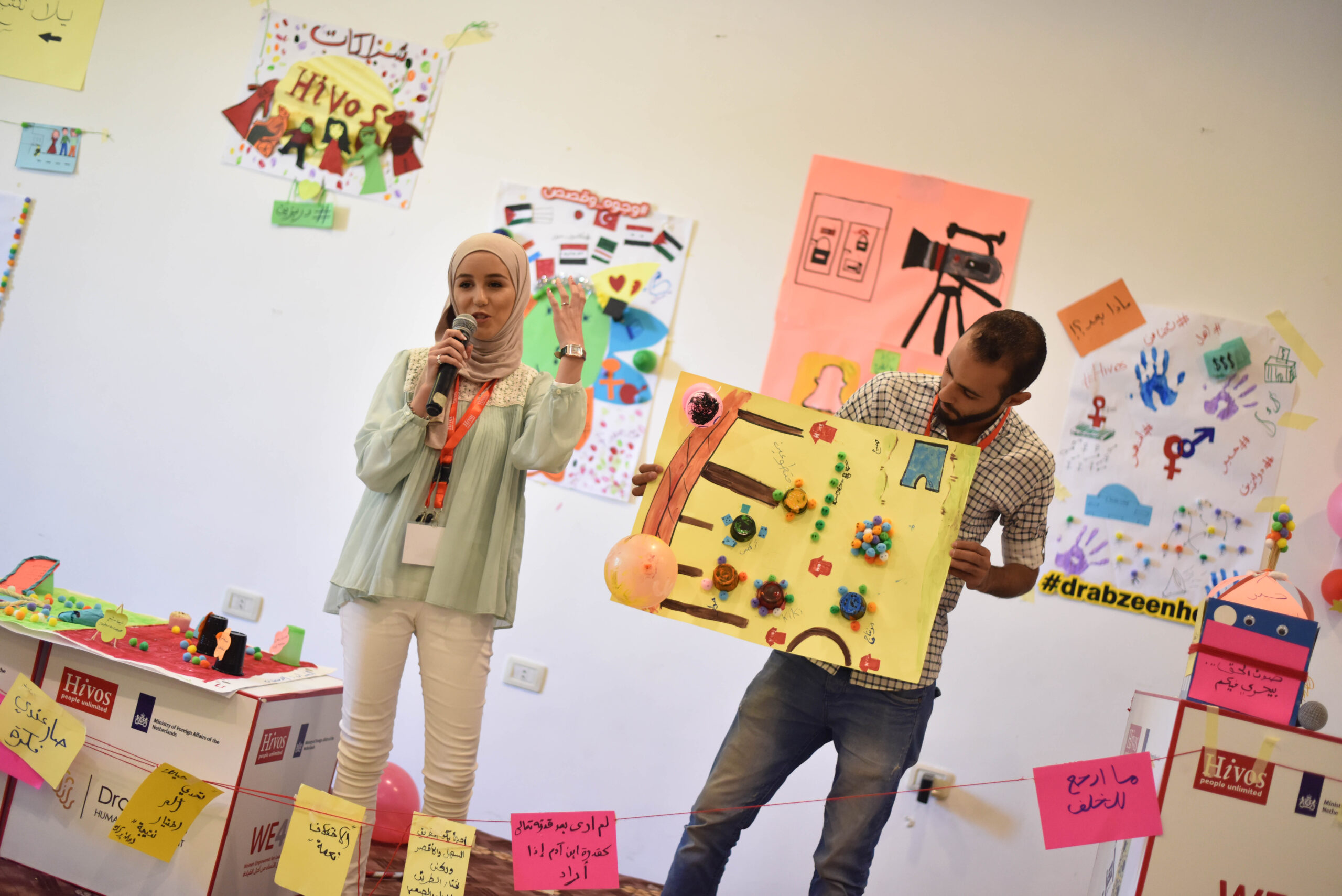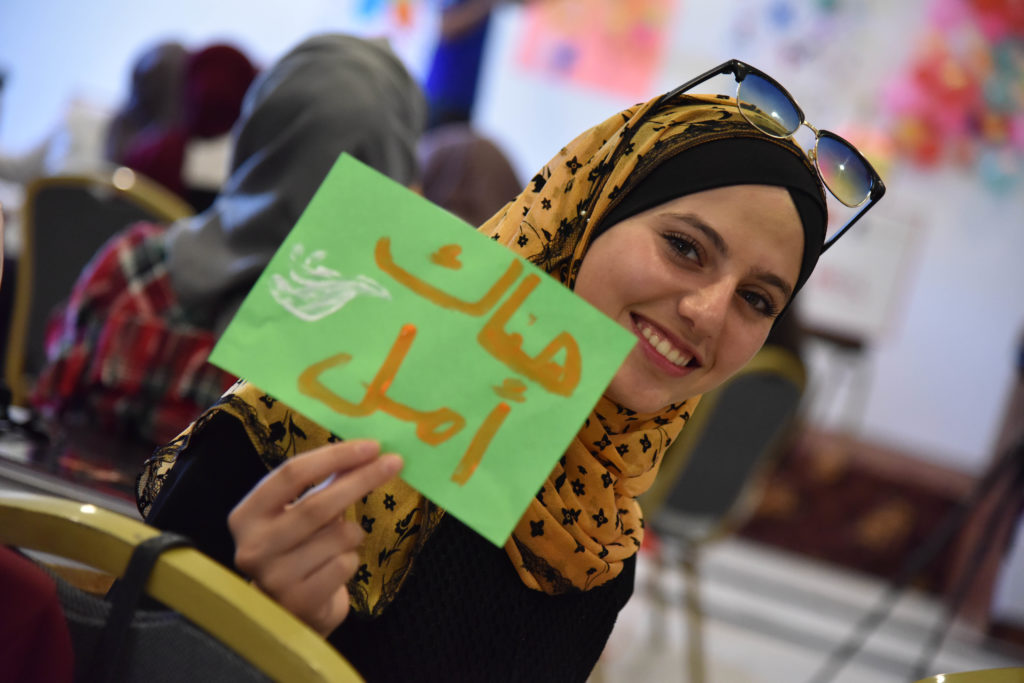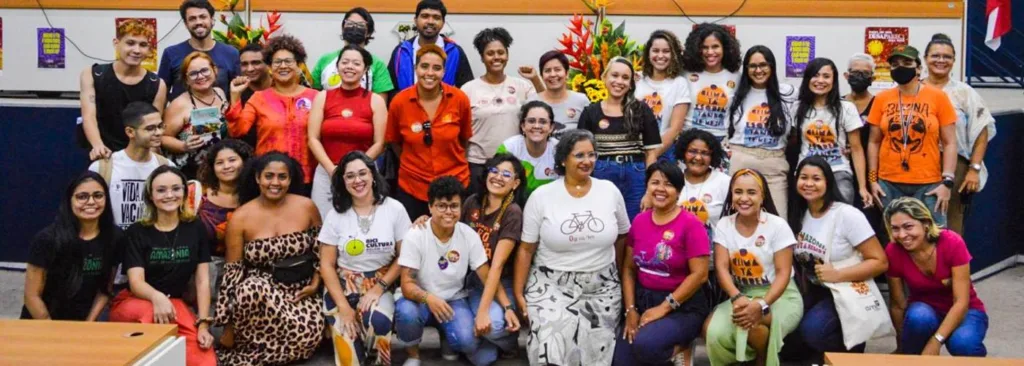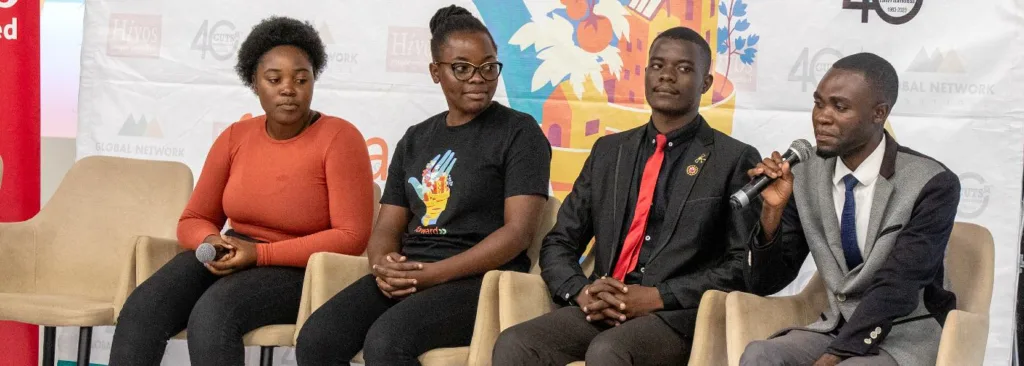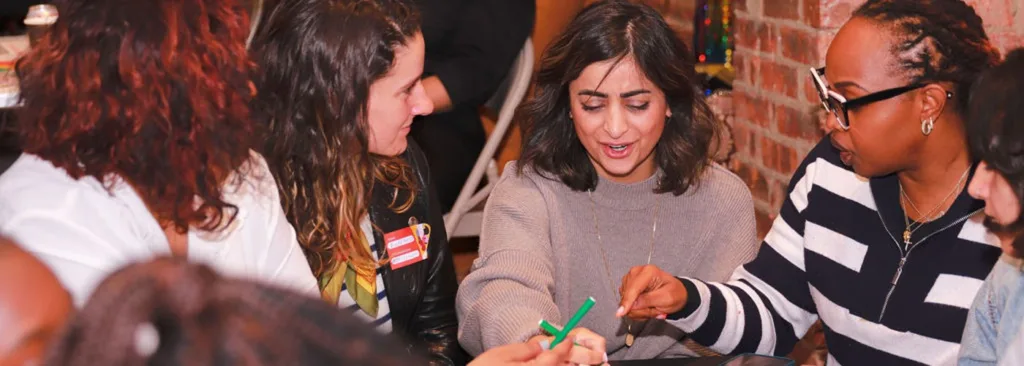id=”410″ id=”post-1027″ class=”wp-post-content-block ” itemscope itemtype=”http://schema.org/BlogPosting” itemprop=”blogPost”>
A Learning Moment: Gender youth camp in Jordan highlights gender issues
By Laudy Issa
A learning youth camp organized by WE4L used an inclusive and interactive approach to create a platform for dialogue on power inequity and gender issues for 100 Jordanian youths.
How the Youth Camp was organised
Implemented in collaboration with WE4L partners SIGI, Ahel, Drabzeen, 7iber and ANHRE between August 16 and 19, “Youth Camp: Women Empowered for Leadership” invested in each Hivos Jordan partner’s area of speciality. The partners chaired discussions on gender under a variety of topics that included technology and social mobilization.
In groups of 25, participants rotated through 10 interactive workshops with different civil groups, mentors, influencers, and experts from various sectors including media, arts, economics, politics, and social work.
“I thought that the participants from other governorates would be okay with their rigid and traditional roles in society, but I was wrong,” said Danya Za’balawi, a nursing student at the University of Jordan and one of the hundred participants at the gender youth camp. “I was surprised to see them capable of taking up non-traditional roles despite the shortage of opportunities.”
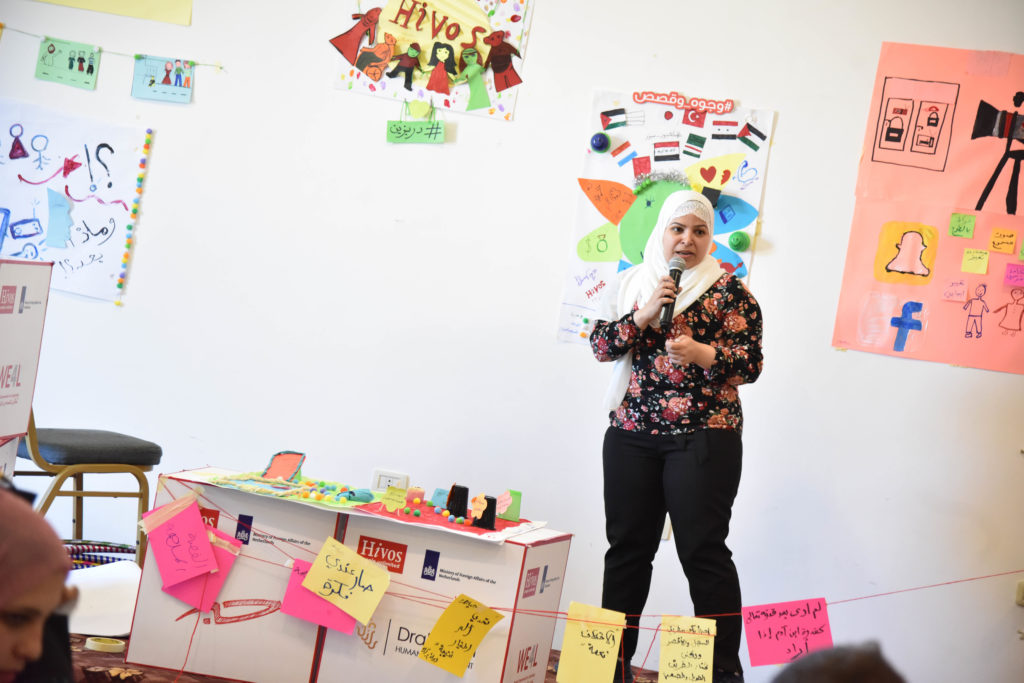
Shared experiences for Learning
Through sharing their real life experiences, three speakers inspired youth to become active participants in the decision-making processes of their communities. Activist and politician Salma Nims, blind theatre actress Rawan Barakat, and disabled social worker Aya Qusous delivered pro-equity messages through sharing the professional and personal difficulties they experience in their everyday lives. Each of the three inspirational speakers provided real life examples that alter traditional mindsets on gender. Nims became the Secretary General of the National Committee for Women’s Affairs after difficulties pursuing higher education abroad and battling cancer, Barakat pursued theater despite being blind and currently produces audio books , and Qusous developed an application that locates wheelchair-accessible areas in Jordan for people with physical disabilities.
“You can achieve a lot if you put your mind to it,” said Barakat. “It takes passion, patience, hard work, commitment, clear vision, and, above all, no fear.”
Additionally, participating youth learned how to present and deliver compelling stories of national interest to mobilize others towards societal reform through several practical workshops. They identified roles imposed by cultural stereotypes through two workshops, one where they deciphered symbols written on balloons by other participants and another where they were divided into teams that presented situations including individuals who are provided with benefits or are discriminated against.
Key messages from the camp
Jordan currently has the lowest percentage of female workforce participation in the region, 14 percent as opposed to 37 percent internationally. The gender youth camp highlighted the importance of the economic empowerment of women through a workshop and games that delivered messages such as “women can lead” and that economic empowerment requires both the joint effort of women and men.
“I liked how the games and exercises highlighted the fact that when women are free to work outside the home they can contribute to the progress of their households,” said Aseel Sa’adeh from the Amman governorate. “Men shouldn’t be afraid of women’s financial independence, and I think this message was made clear at the camp.”
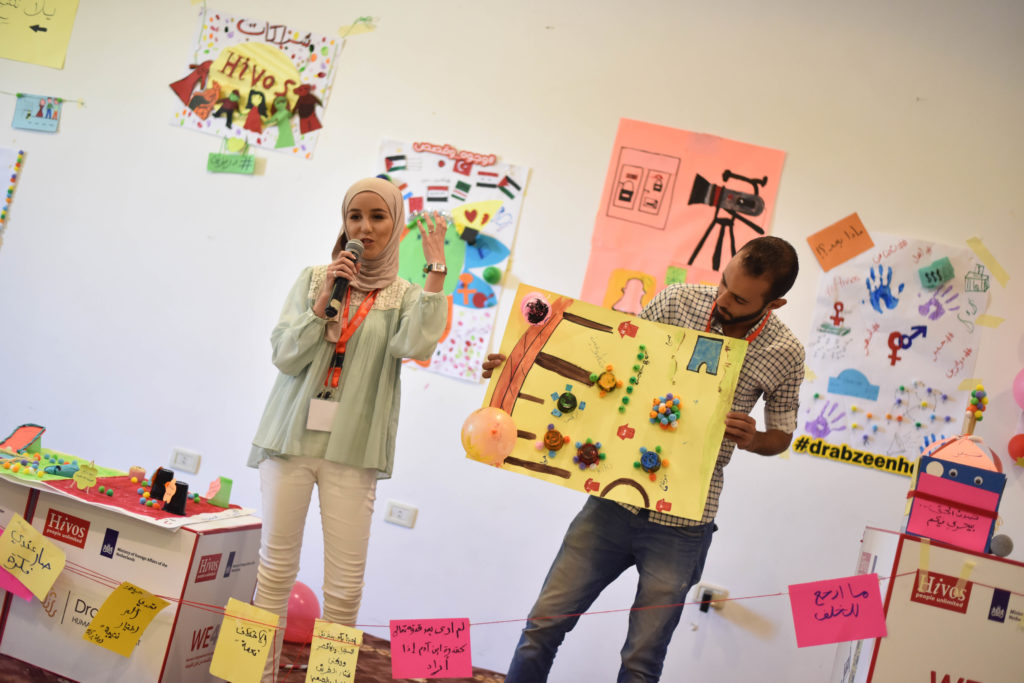
Lawyer and senator Asma Khader from Sigi corrected a number of misconceptions on political participation and mentioned that youth constitute one-third of Jordanian society, urging participants to become engaged in public life and ignore the prevailing belief that “politics is for experts.”
“The camp taught me that you have to be loyal to what you do, no matter what that is. I learnt about the significance of the people around me and the power of the group,” said Shadia Khraisat, an activist and volunteer. “I learnt not to make judgments, and to dismiss any stereotyping.”
Another workshop focused on the need for gender sensitive technology, introducing participants to the relationship between technology and gender and encouraging them to identify both discriminatory technological tools and how to improve them.
Other lessons learned at the Camp
The outcomes of the camp also included introducing participants with unconventional cultural tools of promoting messages, by demonstrating shadow theatre that encourages female participation in leadership positions.
In a dialogue session about the Tunisian experience and role of youth in changing laws, 29-year-old activist Amal Yakoubi discussed her personal experience in joining a group of young women and men who lobbied for the constitutional amendments that led to equal rights between females and males in marriage and inheritance. Lawyer and human rights activist Asma Khader also shared her role in helping with the abolishment of Article 308, which allowed rapists to escape punishment if they marry their victims. Despite the opposition that the Tunisian activist faced, her persistence provided a clear example to the participants about the capabilities and necessary role that youth play in advocating for gender equality.
Camp Survey
Prior to and after attending the camp, Hivos distributed a questionnaire to participants to assess whether their traditional views on gender roles were changed.
For example, when asked about whether sharing stories builds group identity, 56 percent said they strongly agreed in the pre-camp assessment while 68 percent strongly agreed in the post-assessment. Additionally, 22 percent of the youth strongly agreed in the pre-assessment that media portrayal of women contributing to female participation in leadership positions while 40 percent strongly agreed in the post-assessment.
The results of the survey showed a substantial paradigm shift in both females and males regarding women in political and social leadership positions, the roles of technology and media in creating stereotypical images of youth and women, and the effect of culture and tradition on female participation. By using an inclusive and practical approach, the gender youth camp from WE4L Jordan created space for positive dialogue on gender through different topics that allowed its 100 participants to come out with different perspectives on the role of both the youth and women in leadership.

